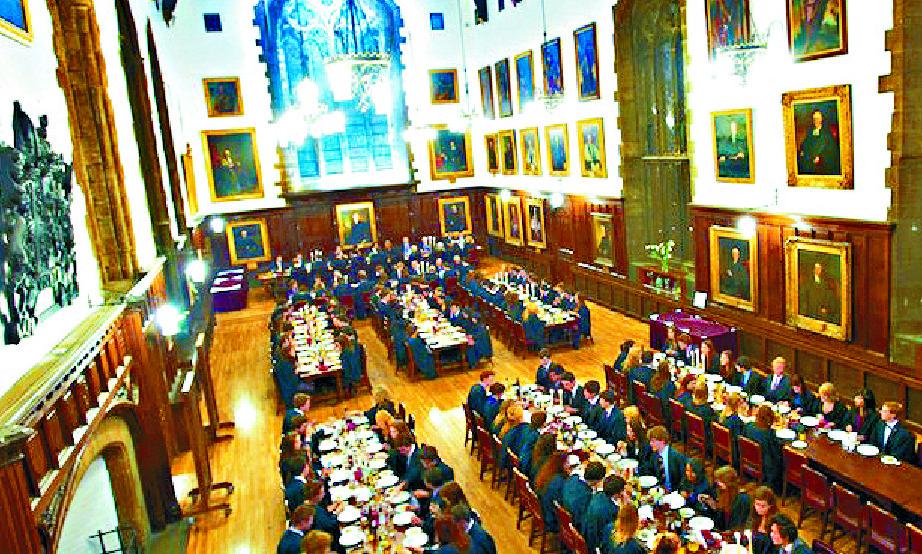
Staff reporter
Students from rich families are gaining admission to Britain’s top universities by paying middlemen even though they have lower grades than those required of UK applicants, an investigation by The Sunday Times reveals.
Foreign students can buy their way onto highly competitive degree courses with as little as a handful of C grades at GCSE, or the secondary five level in Hong Kong.
Courses require British students to have A or A* grades at A level or the Diploma of Secondary Education level.
Undercover reporters visited one of the United Kingdom’s top recruitment agencies, Amber Education, in London last month. The company, owned by a Hong Kong businessman, is an agent for Nottingham, York, Exeter and Durham universities and sends 2,000 mainly Chinese students a year to British universities.
The reporters were greeted by Amber’s education officer, Sam Lam.
He is in no doubt why overseas students are offered much lower grades, saying they pay more money and the university will receive almost double, so they give leeway for international students.
Lam had revealed many wealthy foreign nationals studying at elite UK private boarding schools use the pathways route to get on good degree courses.
The pathways are easy, Lam says. “For most coursework you get 50 percent just for handing it in. You turn up, you do the bare minimum. That’s the pass mark.”
So why are the courses not publicized in the UK?
”They would not be qualified because they’re home students,” Lam says. “That is a different queue It’s not something they want to tell you, but it’s the truth.”
Representatives for Amber later said Lam had given inaccurate figures for the number of students it was assisting but did not provide alternative figures.
”Back door” routes are so lucrative that top universities pay tens of millions of pounds a year to agents and companies to hunt out wealthy students. Some of these businesses operate offices and run courses on university campuses, and their bosses are paid more than most vice-chancellors. The agents typically take about 20 percent of the fees paid by a first-year student.
Foreign students pay up to 38,000 (HK$378,000) in tuition fees, which are capped at 9,250 for UK students.
In the decade before the pandemic, the number of UK students being accepted by top universities dropped significantly, while overseas admissions escalated rapidly.
Demand for lucrative foreign students is so great that universities advertise their courses in the Middle East, Africa and Asia and use recruitment agencies.
There are 15 Russell Group universities that offer special one-year pathway courses that allow overseas students to gain access to undergraduate degrees with far lower A-level or GCSE grades than normal requirements. They are: Durham, Bristol, Exeter, Warwick, Nottingham, Leeds, Manchester, Newcastle, Liverpool, Cardiff, Sheffield, Birmingham, Southampton, Queen Mary University of London and Queen’s University Belfast.
The Times discovered students wishing to read economics using one of the pathways needed grades of CCC at Bristol, CCD at Durham, DDE at Exeter, DDE at Newcastle and just a single D at Leeds. Yet the universities’ A-level entry requirements for UK students is A*AA or AAA. All five universities also accept overseas students with just five C or B grades at GCSE.
The special pathways purport to provide an extra year of tuition after helping students catch up with their UK counterparts.
International foundation is a one-year course at the end of which students are moved on to the full undergraduate course. Most universities allow overseas students to start the pathway course aged 16 or 17.
On international year one, students take the course as an alternative to a degree’s first year before moving straight into year two of the undergraduate program. Neither of the two pathways is available to UK students.
Students on the pathways have to pass exams at year-end before joining the undergraduate degrees. However, the universities’ recruitment officials admit exams were so easy that passing is a formality.
Another recruitment official said at least 30 percent of foreign students entering UK universities use the back-door routes, which equates to more than 30,000 a year.
Goldmax Immigration director Benny Cheung Ka-hei told The Standard some education agents would recommend students apply for special pathway courses.
With Britain and Australia tightening immigration policies, he said such short-term courses may be canceled in the future.
Cheung said the reputation of British universities will not be affected by the special pathway courses, as top universities still have relatively high requirements.
An analysis shows students from outside the European are more than twice as likely to receive a lower second- or third-class degree, worse than local students.







